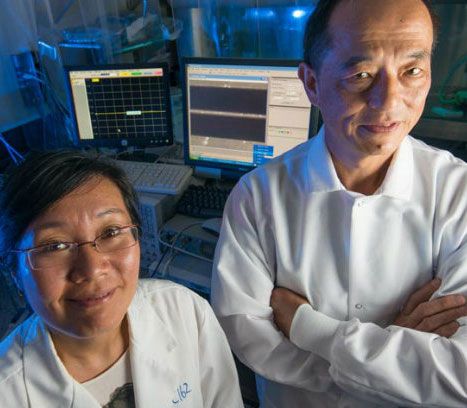To test for malignancy or monitor the effectiveness of cancer treatment, a person’s tissue must be extracted, sent to a lab, stained and analyzed by a pathologist—a process that can take days to complete and is subject to human error.
Xuanhong Cheng, associate professor of materials science and engineering, and James Hwang, professor of electrical and computer engineering, have something different in mind.
These two Lehigh engineers envision a future where cancer screening and treatment monitoring will be conducted at the point of care using microwave technology to characterize the nucleus of a single cell captured on a small microfluidic device. This lab-on-a-chip method would not only have the advantage of being portable, but would also be faster, cheaper and more streamlined than currently available methods. The duo were recently awarded a three-year grant by National Science Foundation (NSF) to explore this unique approach.
Read the full story at the Lehigh University News Center.
-Lori Friedman is Director of Media Relations with Lehigh University's Office of Communications and Public Affairs.

